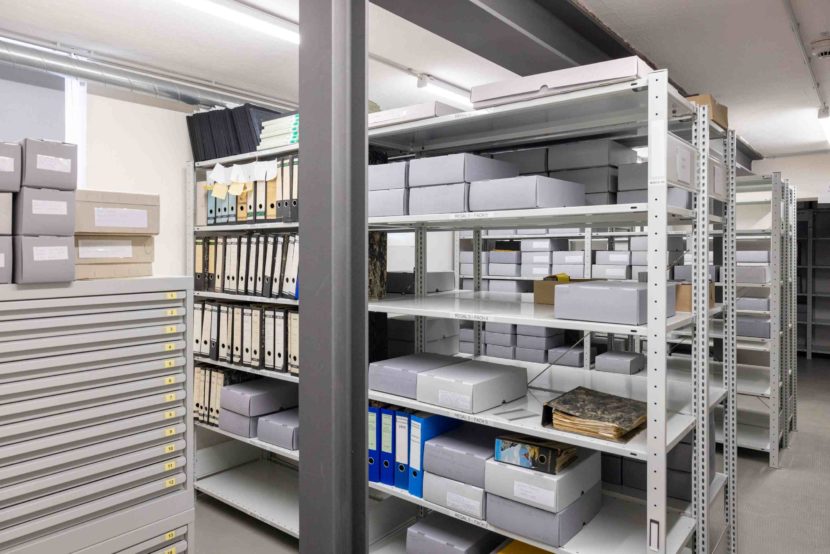Archive
The archive of the Flossenbürg Concentration Camp Memorial contains a diverse, thematic collection of sources on the history and aftermath of the Flossenbürg concentration camp. The majority of the written records consist of reproductions of Nazi and post-war administrative documents compiled from other archives (Federal Archives in Berlin/Koblenz; state and regional archives; city archives; National Archives in Washington, etc.). The documents and memoirs of former prisoners, which they or their relatives have given us in original or copy form, constitute a unique collection.
Holdings
In total, we hold around 85 linear meters of original documents (memoirs, photos, construction plans), physical copies (approx. 89,000 pages), and digitized material from other archives, as well as hundreds of interviews in various audio and video formats. The prisoner database and digitized documents are managed using the “Memorial Archives” database. The collection of original objects, including works of art, textiles, building components, archaeological finds, etc., covers around 120 linear meters. The holdings of the Flossenbürg Memorial have not yet been fully inventoried.
Our mission
We want to keep alive the memory of the people who were imprisoned, abused, and killed in the Flossenbürg camp complex. To this end, we collect and preserve written testimonies and objects that document and process the experiences of imprisonment. We use this material to research the life stories of the prisoners and preserve them for future generations.
Research in the online archive of the Arolsen Archives
Most of the surviving documents from the concentration camps are now held in the Arolsen Archives. The online archive of the Arolsen Archives allows you to conduct your own research.
Since not all documents are available online and the Arolsen Archives often have additional information, we recommend that you also submit a written inquiry to the archive.
Inquiries about individuals and the history of the Flossenbürg concentration camp
The Flossenbürg Concentration Camp Memorial maintains its own database, the Memorial Archives.
Inquiries about prisoners of the Flossenbürg concentration camp and general questions about the history of the camp can be submitted directly to our archive using an online form. We will conduct research for you and then send you all the information we have available.
Since the entries in the Memorial Archives contain sensitive data, not all information and documents are accessible without registration. However, researchers, employees of educational institutions, etc. can apply for access to the database for independent research purposes, provided they give a valid reason.
Visiting the archives
Visits to the archives are only possible by prior appointment. We can provide a lot of information by email, so in most cases a visit to the archives is not necessary.
Please register with us via an Online Archive Inquiry.
Library
The memorial's library is a reference library with a collection focusing on National Socialism, concentration camps, forced labor, and remembrance culture. Its holdings currently comprise approximately 7,000 items.

